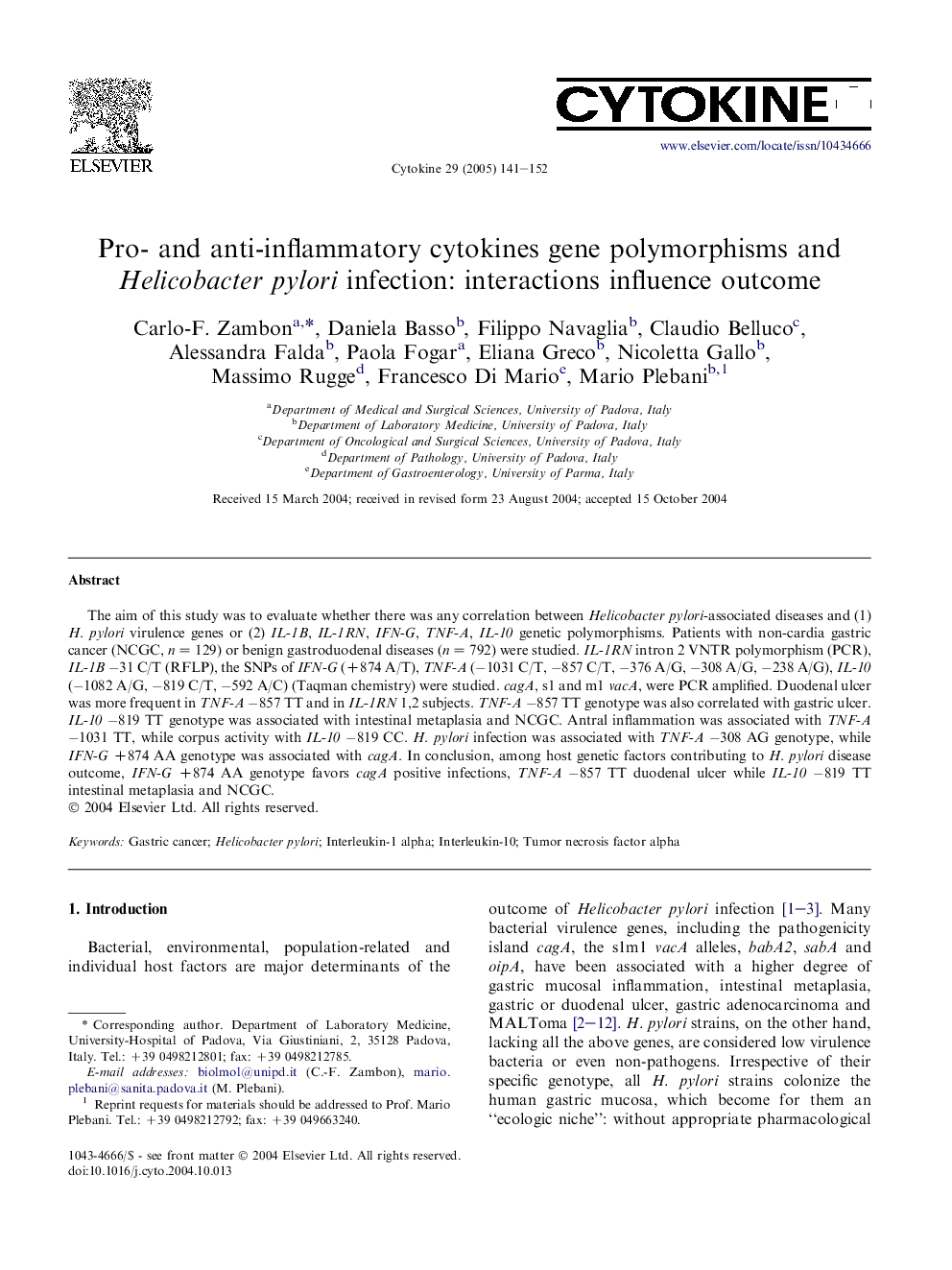| Article ID | Journal | Published Year | Pages | File Type |
|---|---|---|---|---|
| 9110871 | Cytokine | 2005 | 12 Pages |
Abstract
The aim of this study was to evaluate whether there was any correlation between Helicobacter pylori-associated diseases and (1) H. pylori virulence genes or (2) IL-1B, IL-1RN, IFN-G, TNF-A, IL-10 genetic polymorphisms. Patients with non-cardia gastric cancer (NCGC, n = 129) or benign gastroduodenal diseases (n = 792) were studied. IL-1RN intron 2 VNTR polymorphism (PCR), IL-1B â31 C/T (RFLP), the SNPs of IFN-G (+874 A/T), TNF-A (â1031 C/T, â857 C/T, â376 A/G, â308 A/G, â238 A/G), IL-10 (â1082 A/G, â819 C/T, â592 A/C) (Taqman chemistry) were studied. cagA, s1 and m1 vacA, were PCR amplified. Duodenal ulcer was more frequent in TNF-A â857 TT and in IL-1RN 1,2 subjects. TNF-A â857 TT genotype was also correlated with gastric ulcer. IL-10 â819 TT genotype was associated with intestinal metaplasia and NCGC. Antral inflammation was associated with TNF-A â1031 TT, while corpus activity with IL-10 â819 CC. H. pylori infection was associated with TNF-A â308 AG genotype, while IFN-G +874 AA genotype was associated with cagA. In conclusion, among host genetic factors contributing to H. pylori disease outcome, IFN-G +874 AA genotype favors cagA positive infections, TNF-A â857 TT duodenal ulcer while IL-10 â819 TT intestinal metaplasia and NCGC.
Keywords
Related Topics
Life Sciences
Biochemistry, Genetics and Molecular Biology
Endocrinology
Authors
Carlo-F. Zambon, Daniela Basso, Filippo Navaglia, Claudio Belluco, Alessandra Falda, Paola Fogar, Eliana Greco, Nicoletta Gallo, Massimo Rugge, Francesco Di Mario, Mario Plebani,
